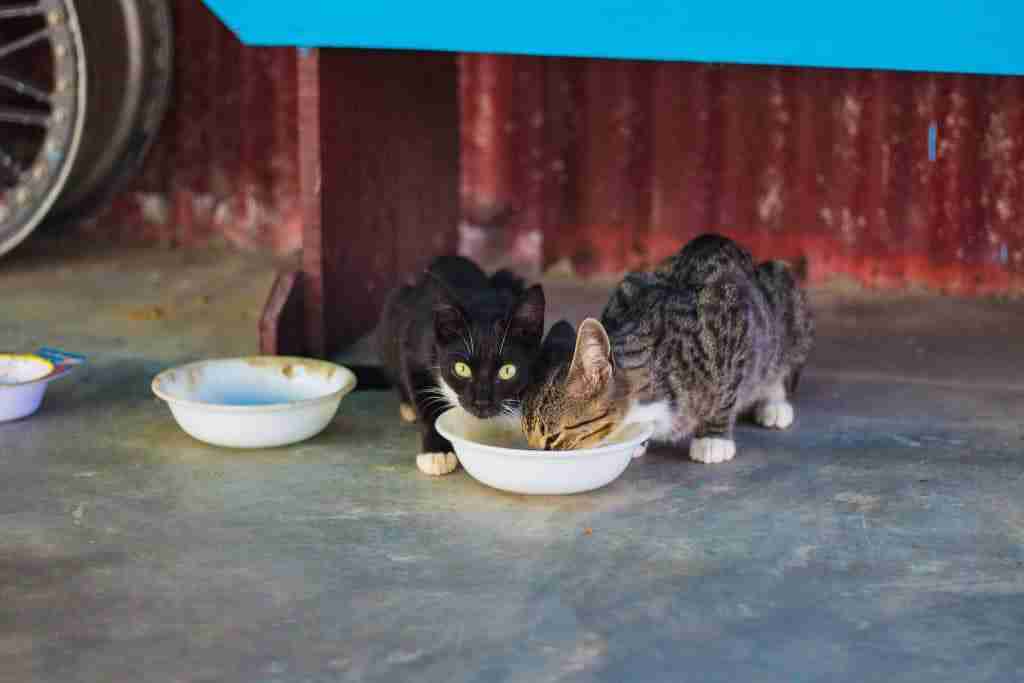So, you haven’t seen your cat eat for some time and you are getting worried? You are wondering how long can a cat go without eating food? Well, the short answer is that if they haven’t eaten for 36 hours then they are in grave danger and it may already be too late. Even if they are still drinking water and packing some extra weight…
In truth, you as an owner probably know your cat and its habits well. If you know they definitely haven’t eaten for 24 hours you should get them to a vet to get checked out as a matter of urgency.
As cat owners, we might recognize our cats as having slightly erratic eating behaviors – perhaps they get fed elsewhere when outdoors and then don’t eat as much at home. Perhaps they turn their nose up at a meal every now and again. Perhaps they sneak eat when you are not looking? But as an owner, if you know they haven’t eaten in 24 hours despite having access to food, then the alarm bells should be ringing.
Surprisingly, it is the overweight cats that are in the most danger – these are the ones you feel could probably survive without a few meals. The truth is their extra fat works against them if they suddenly stop eating. A skinny cat has a better chance of survival beyond 36 hours purely because it isn’t so fat. The answer lies in what mechanisms actually occur in the feline body when they stop eating.
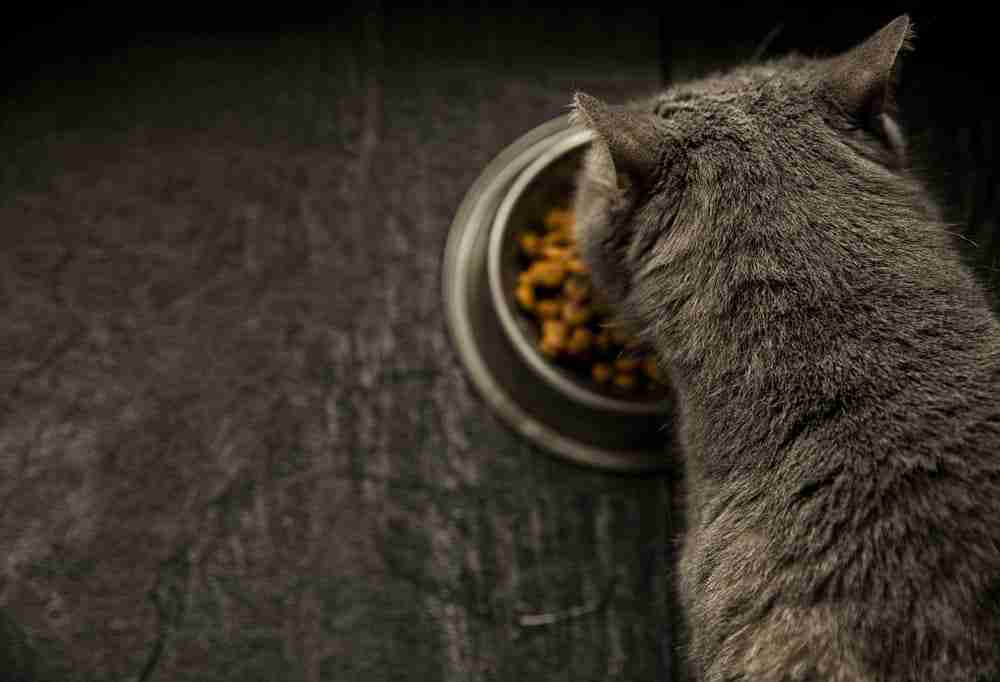
What Happens When A Cat Doesn’t Eat?
When a cat suddenly stops eating it dips into its fat stores for energy. This is a normal function.
The problem arises when the cat does not have enough protein in its diet to bind with the fat in its bloodstream because it has missed too many meals. The fat begins to build up and swamp the liver awaiting a protein supply to bind with and move out to body cells for metabolism.
Essentially if no protein supply arrives from a recent meal this build-up of fat in the liver creates fatty liver disease or hepatic lipidosis in very short order. In itself, this can lead to a massive reduction in appetite which deepens the problem. The fatter the cat, the worse the problem as more fat is circulated and clogs up the liver whilst awaiting a protein supply.
So how long can a cat go without food? Unfortunately, the condition can prove fatal in as short a period as 2 – 10 days.
You can read an excellent write-up on the condition here at feline-nutrition.org. Essentially, as the article suggests, feline hepatic lipidosis is a very serious condition and the treatment of the condition is difficult and can take weeks of tube feeding to overcome. A cat that has suffered from the condition rarely fully recovers – they often suffer longer-term organ damage at a minimum, even if they cheat death.
This is why a cat missing meals for any period of time is an emergency.
Why Is My Cat Not Eating Like Before?
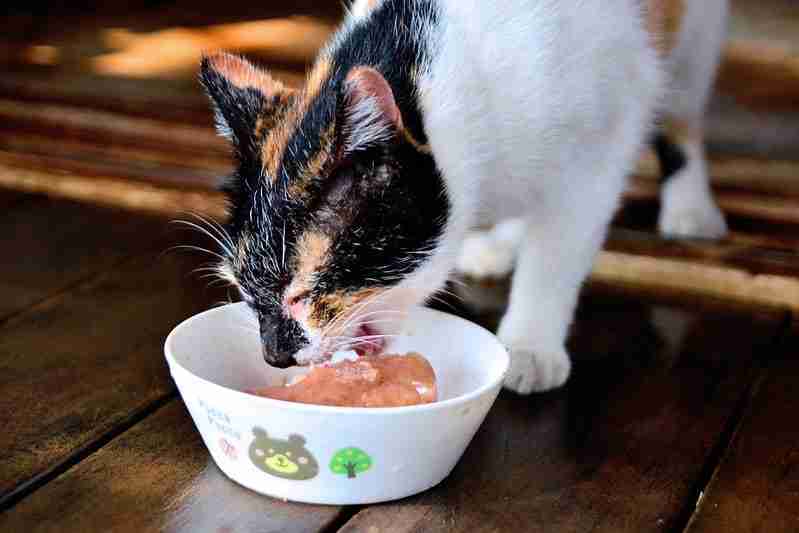
Why do cats go off their food? If your cat isn’t eating then there could be a whole host of reasons why. Check out some of the most common reasons why a cat won’t eat here :
Dental issues
This is a surprisingly common reason why cats stop eating and usually one of the first things a vet will check for. Your cat could have toothache as a result of cavities, cracked teeth, wear and tear or even missing teeth that make eating difficult or painful.
As well as issues related to teeth, they may have gum issues or cat stomatitis caused by infection or ulcers and sores caused by illness or nutrient deficiencies.
If your cat is on a dry diet and suddenly gets a toothache from damaged teeth it is likely to reduce, and even stop eating until the pain subsides.
Either damaged teeth or other mouth issues can often be quickly and effectively treated by a vet if caught in good time.
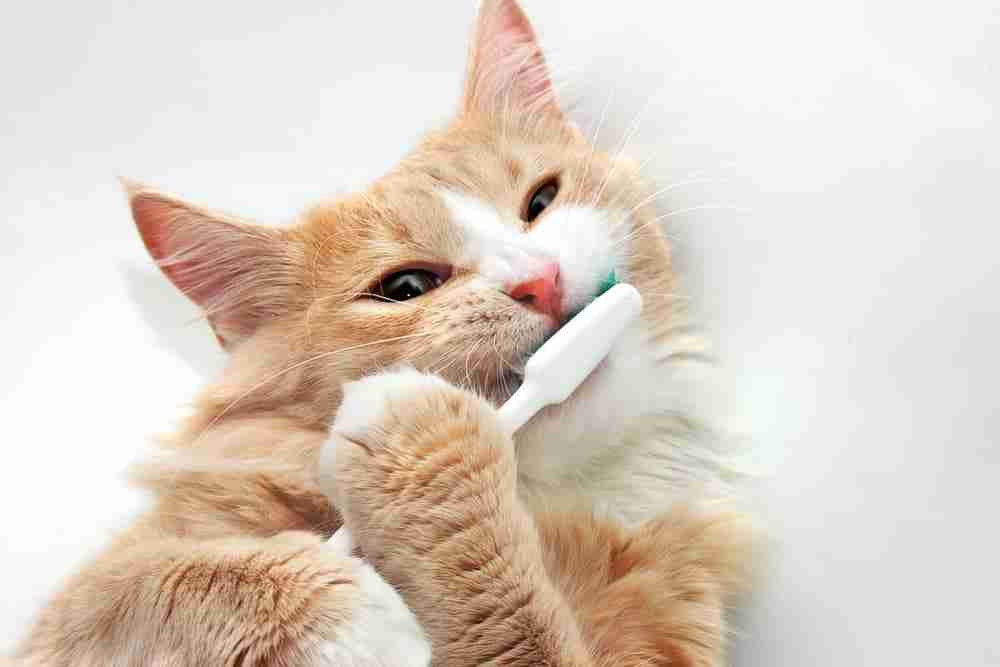
Respiratory issues
Cats, like us, can catch infections of the upper respiratory tract. Catching a “cold” can have the same impact on a cat as it does on a human when we catch a cold. Symptoms are very similar, your cat may get watery eyes, runny nose, start sneezing, cough and experience a loss of appetite.
In many cases, a cat cold will clear itself up within 10 days with the worst effects wearing off after a day or so.
Sometimes the loss of sense of smell associated with a cold may be enough to put a cat off its food and at other times they may just be so miserable with the cold that they just don’t feel overly motivated to eat.
If your cat is suffering a cold and has declined to eat check out some of our tips below to try to tempt them to eat a little, but remember if they eat absolutely nothing you need to get them to a vet quickly.
Gut problems
A painful or aching gut is enough to put anyone off eating, including your cat. Gut problems, in general, do not come on overnight and lead to your cat stopping eating immediately (unless they have suffered an internal obstruction)…usually a gut problem will cause a decline of appetite over time.
Some of the gut problems that might affect a cat’s appetite, in no particular order of commonality or severity, include parasites, colitis, cancer, and pancreatitis. In many instances, the cat will still attempt to eat right up until the problem is severe and requires veterinary intervention.
If your cat shows signs of a general reduction in appetite beyond a day or two, then it might prove wise to rule out any potential gut problems with a physical exam from a vet.
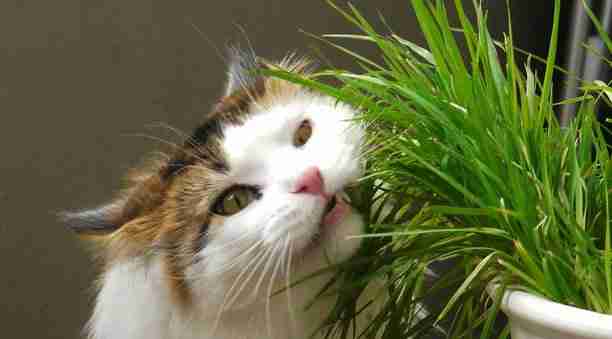
Kidney disease
Cats are quite prone to age-related kidney problems. A moderate to severe kidney problem can often result in a loss of appetite. Usually, other symptoms will be noticeable – increased urination and thirst, gradual weight loss and an unkempt appearance. Blood tests can confirm kidney problems.
If a kidney issue is identified as a source of the loss of appetite then medications and changes to diet can help the cat to live on for many happy years. As with many issues, the key is to get to grips with the problem early.
Motion Sickness
If you have had your cat on a journey via car, plane or boat they might be suffering from motion sickness and the after-effects. Additionally, if you are traveling a long distance for hours on end and your cat suffers a loss of appetite then you could be seeing motion sickness come into play. Either way, be mindful that your cat might need rest and recovery breaks if you are planning long journeys.
Food Issues
Perhaps your cat is not eating because of the food you are feeding them? Cats are very sensitive to food. Changes in taste, texture, even temperature can affect appetite and see them turning their nose up at what looks to be a perfectly good plate of cat food. If your cat licks food but doesn’t eat it might be put off by the texture rather than the flavor.
Check that food hasn’t spoiled or gone past expiry dates, check that recipes haven’t changed and keep an eye out for different textures. Any minor, inconsequential change could be enough to put your cat off!
Environmental Changes
Cats are pretty sensitive to their surroundings. Changes to their local environment like a house move, new housemates, death of an owner or companion animal, home invasion by other local cats or even just a change in an owners working hours and potentially feeding times can bring kitty to a stop.
If your cat suddenly stops eating and you just can’t find anything physically wrong with them, see if you can spot a change to their environment, regime, or schedule that could be causing the problem – even changing the food bowl or location of food might be enough to knock them off track!
Side effects from medicines
An obvious reason for the loss of appetite might be that they are on medication that does not agree with them. The likelihood, in this scenario, is that the vet prescribing the medicine will have warned you of a potential issue. If you think a new or existing medicine might be causing a problem see a vet and get it changed.
How Can I Get My Cat To Eat More?
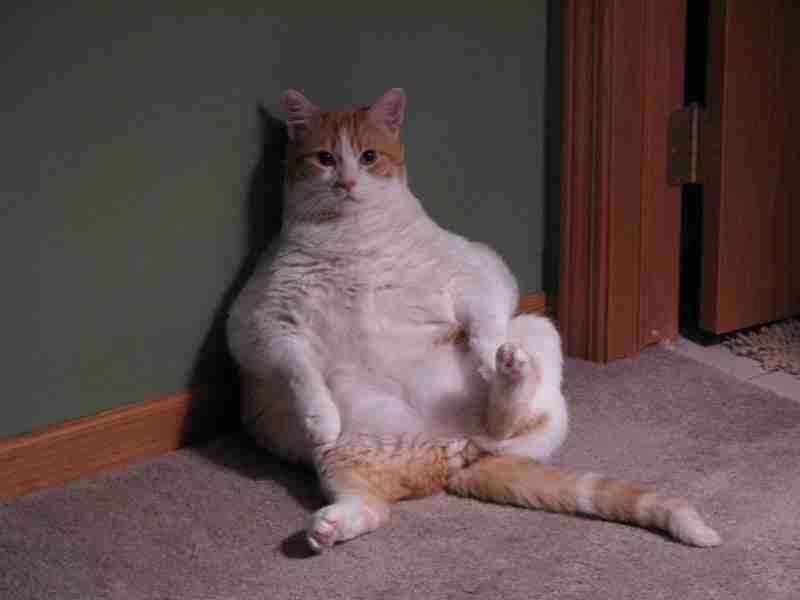
Concerned your cat has lost its appetite? Sure there are no medical issues? Some of these tips might be of help getting your cat to eat more :
Change Food
Real simple, maybe your cat is bored so why not change out their food? Changing from dry food to wet food can make a big difference to a cat as wet food usually has aromas and textures that simply can’t be matched by dry food.
Sometimes just a switch of brand or flavor can reinvigorate an appetite. If you have been feeding the same flavor for months on the basis that it is your cat’s favorite then it may be time to change things up. It may be that your cat is developing a sensitive stomach to the food having consumed so much over a period of time and needs a change out to settle down.
A smart idea might be to try your cat on kitten food for a short treat. Kitten food is often more pungent and tasty than adult food primarily to stir curiosity and get kittens eating. It may do the same for your adult cat – the added benefit is that kitten food has a more dense nutrition profile favored toward building young, growing bodies, so might do your adult cat some good if they have lost weight.
Along the same lines, high-calorie cat food including critical nutrition formulas are often made especially for cats with low appetite or those recovering from an illness – they are usually easy to eat and highly palatable and might be a good temporary choice for a cat that isn’t eating as it should.
Heat up canned food
Slightly left field, but if your cat is on wet food, is it just too cold? Often cold foods don’t have the same flavor or taste profile as warm or hot food. Maybe that wet food needs storing in a warmer place so it tastes better when you feed the cat (maybe a 30-second blast in a microwave might do the trick).
Try cold cuts of meat
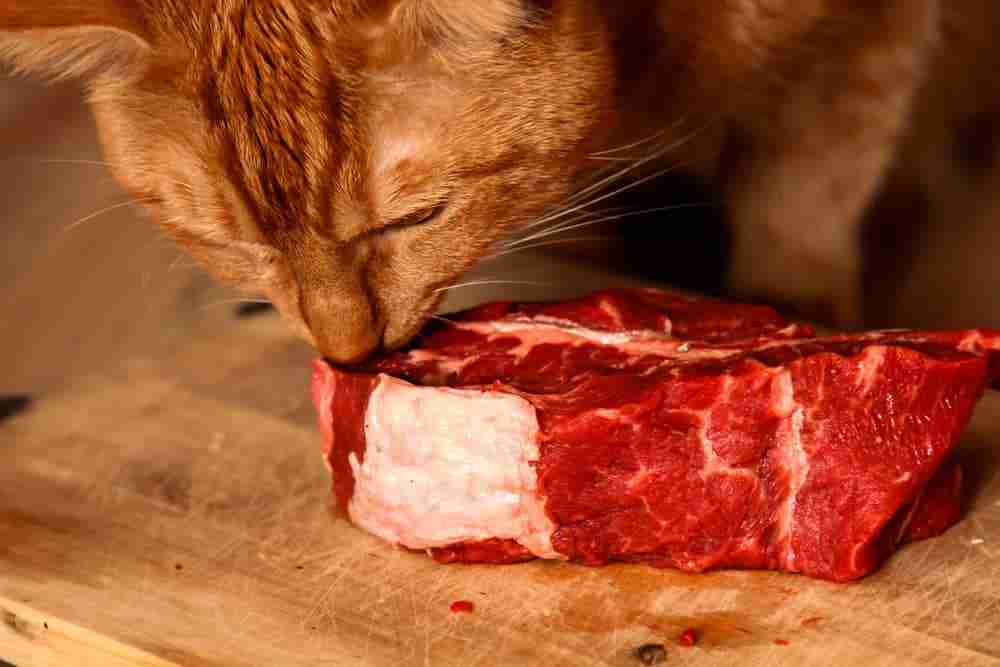
Dry cat food and even wet cat food is nothing like the food a cat might eat in the wild. It is processed to the max – I mean, whoever saw a chicken with a blanket of gravy walk past? Perhaps appetite might be improved if you go back to basics and offer kitty an actual morsel of real, textured meat… Remember, when they are not eating it is the missing protein that can cause a problem – a cold cut of turkey, beef or such, even in small quantities might be enough protein, even in small helpings, to keep trouble at bay.
Change the location of food
Although this might be considered a change that could disrupt their feeding it also might be the answer. Perhaps they need a safer place to eat away from dangers us humans might not perceive?
Maybe the water bowl is too close to the food bowl – in the wild predators rarely eat near water for fear of tainting the water supply.
A change of location might lower stress and allow eating to resume.
Treat with vitamin b12
This should really only be considered on veterinary advice, but vitamin b12 is a known appetite enhancer in cats.
If things just aren’t going well and kitty is really not eating enough on a regular basis it might be time to consider a dose of vitamin b12. Often this is in powder form and can be sprinkled on food to administer an appropriate dose.
Hopefully, if your cat hasn’t been eating well lately, following some of these tips will encourage them to start eating again.
image : flickr
